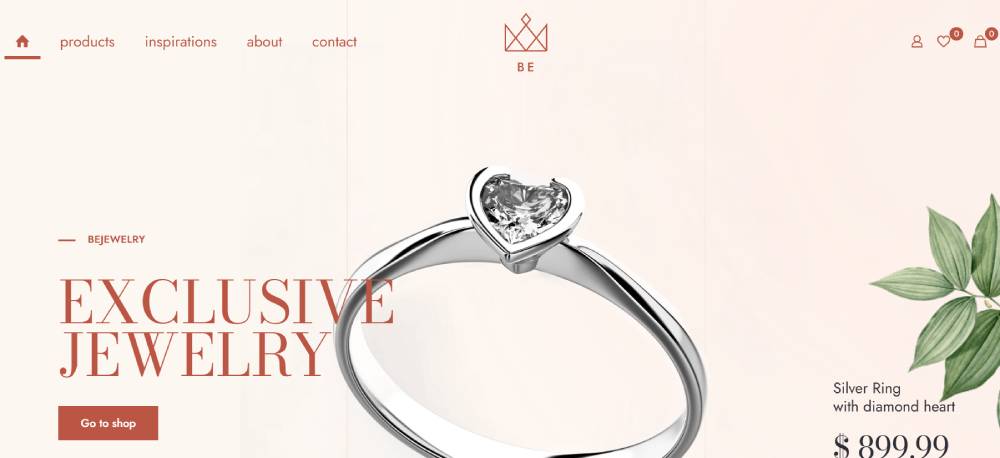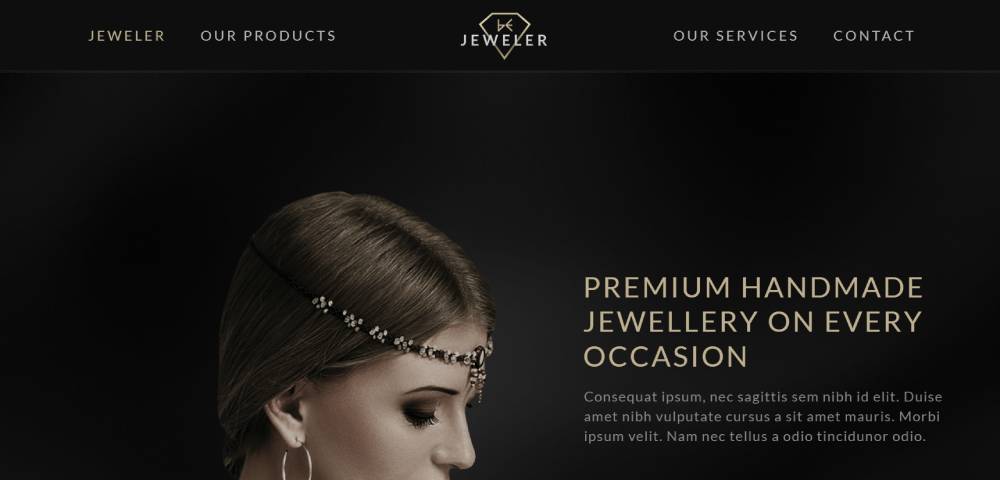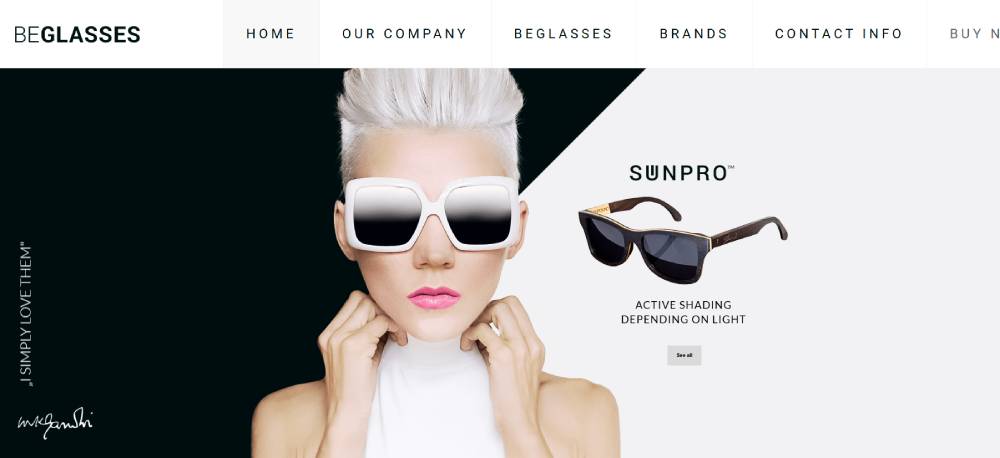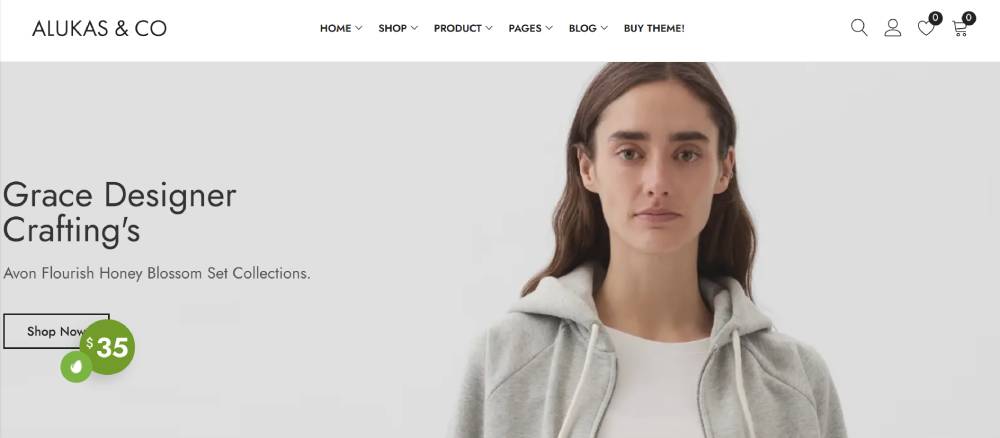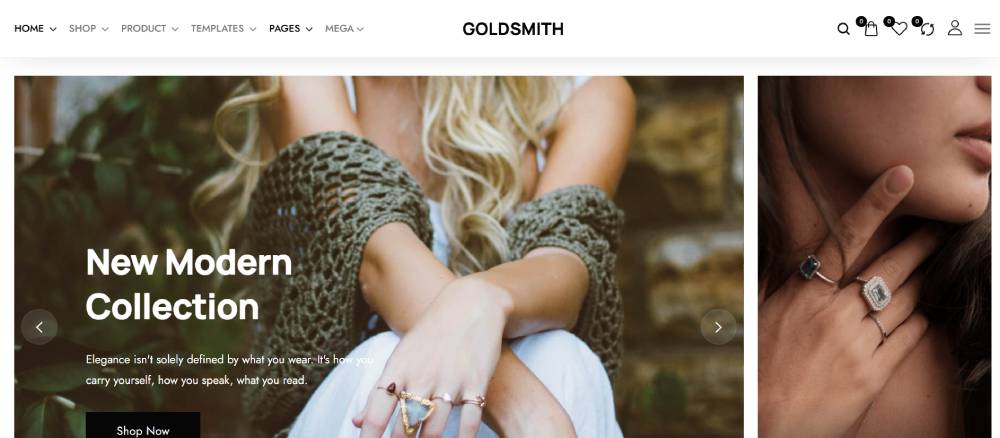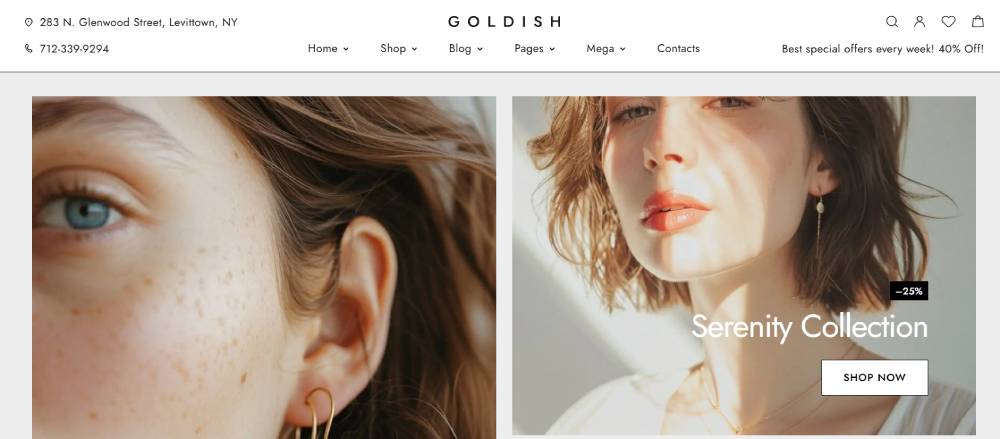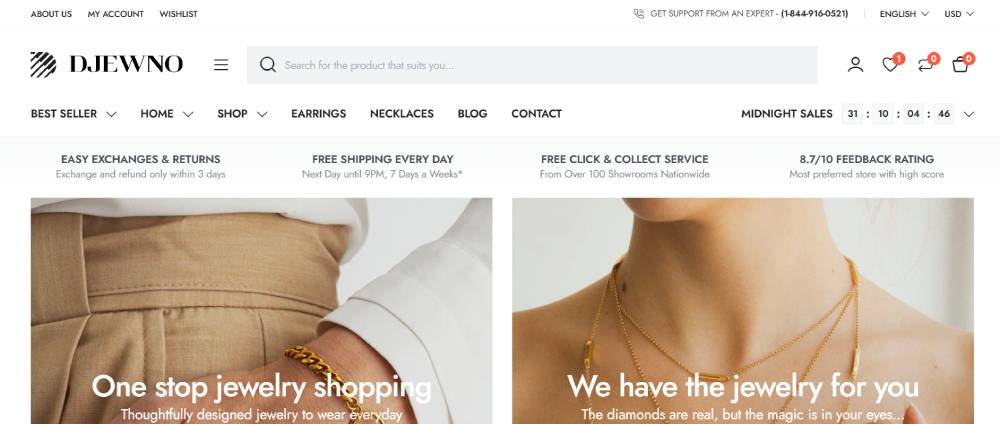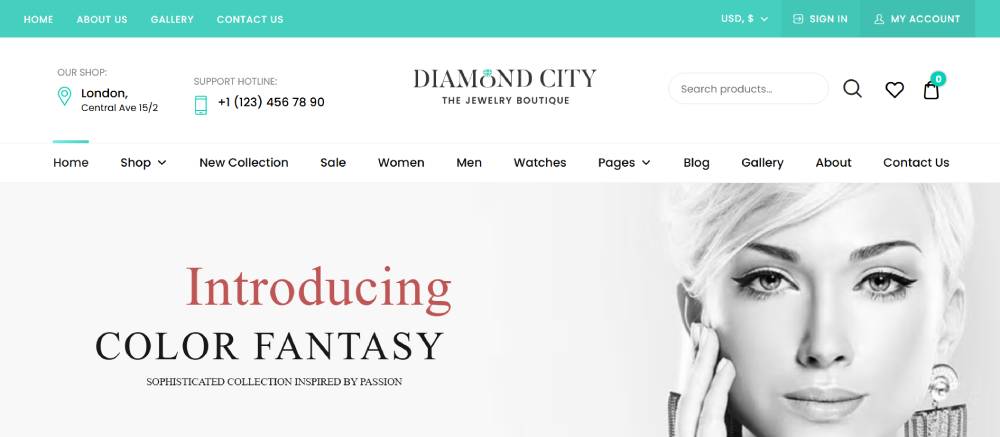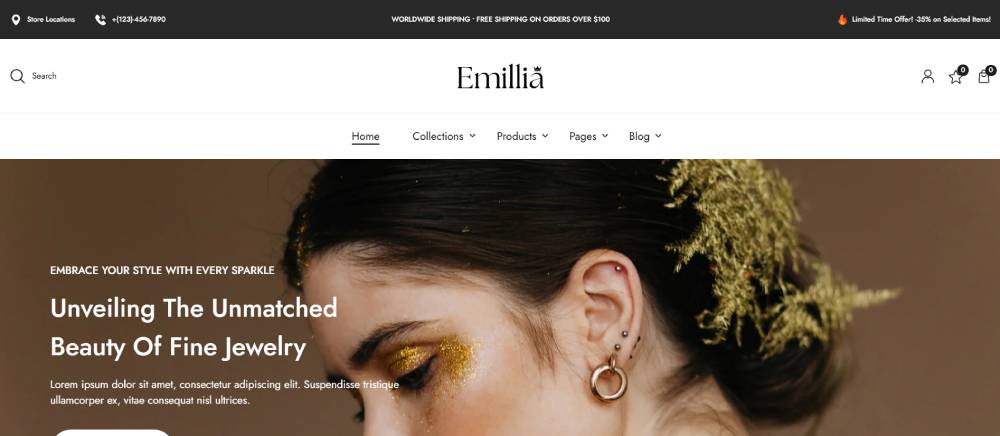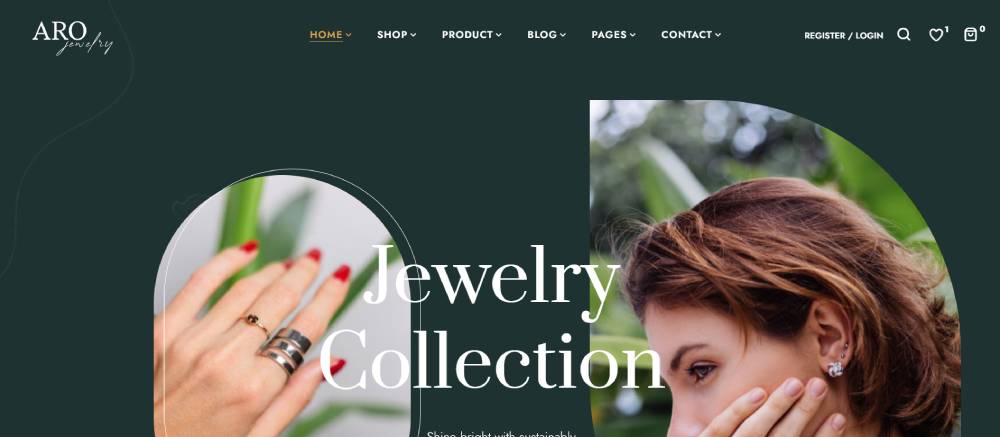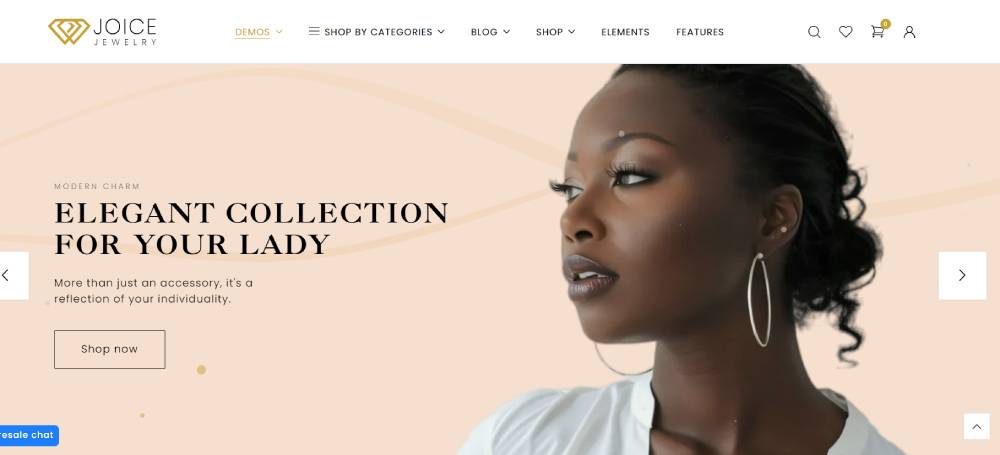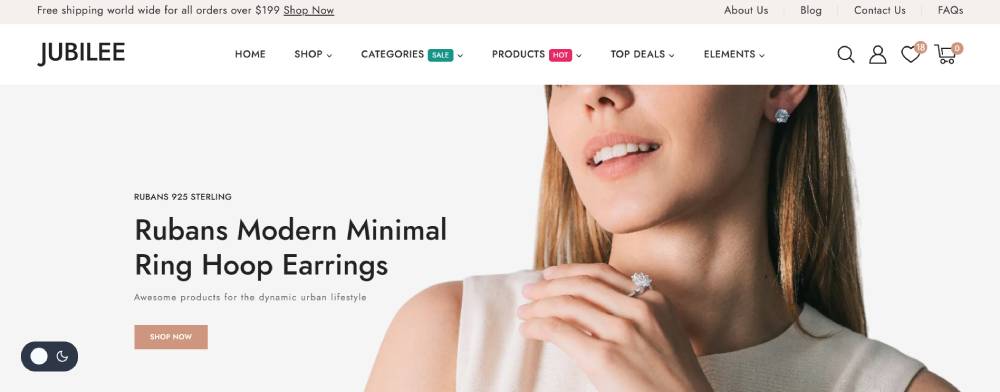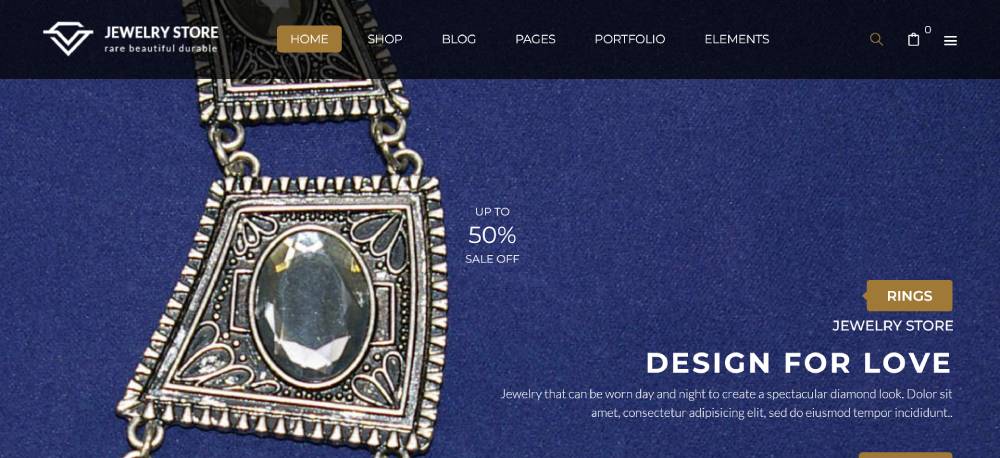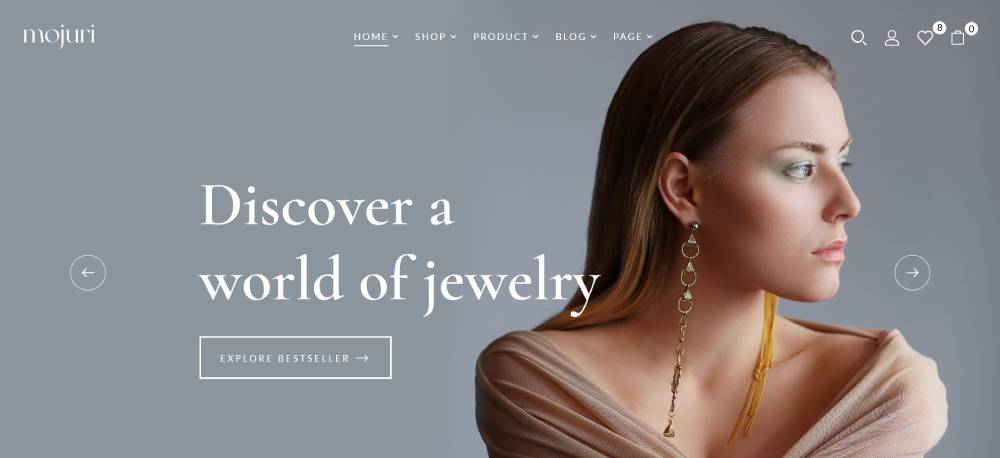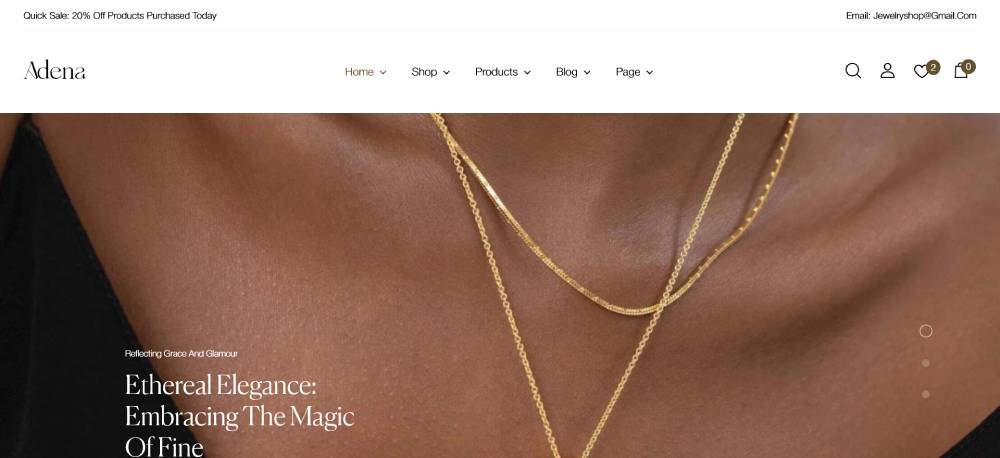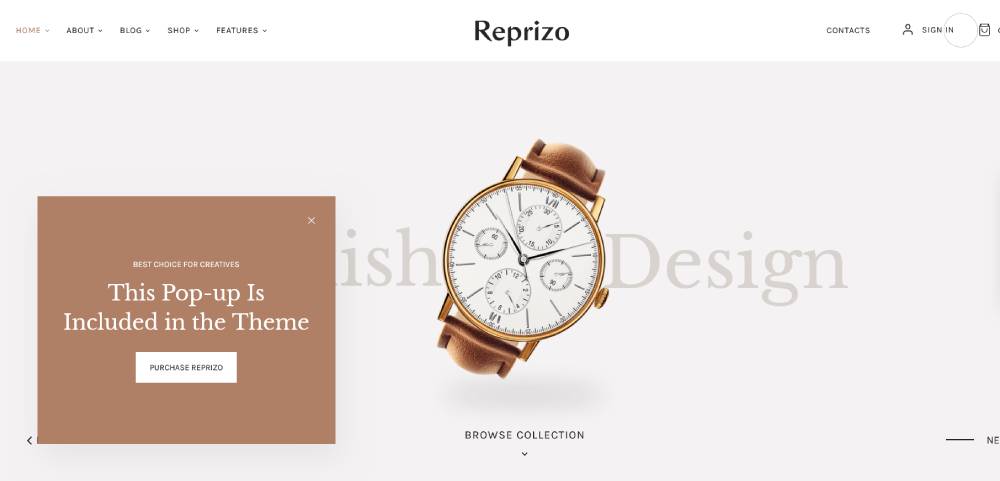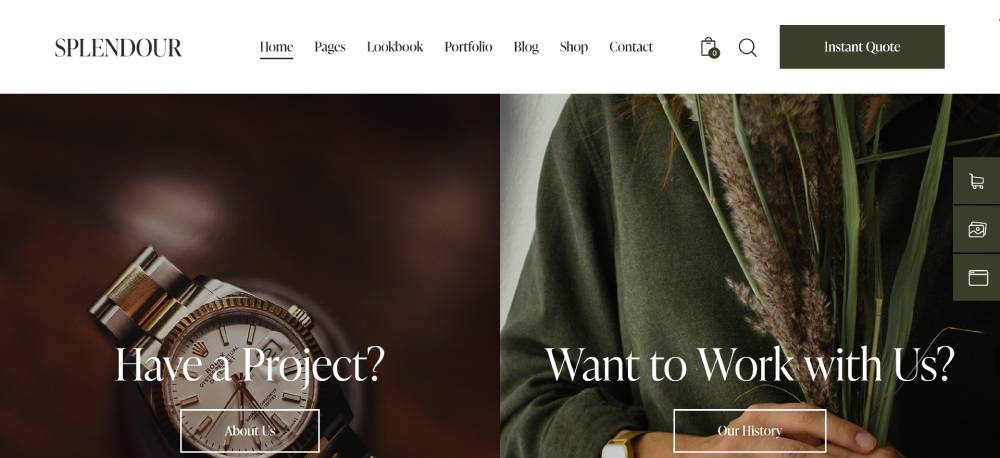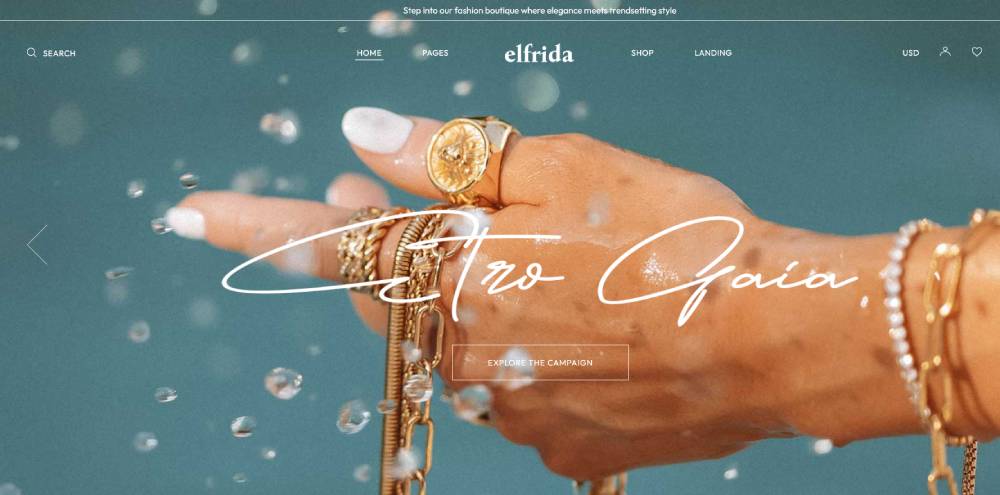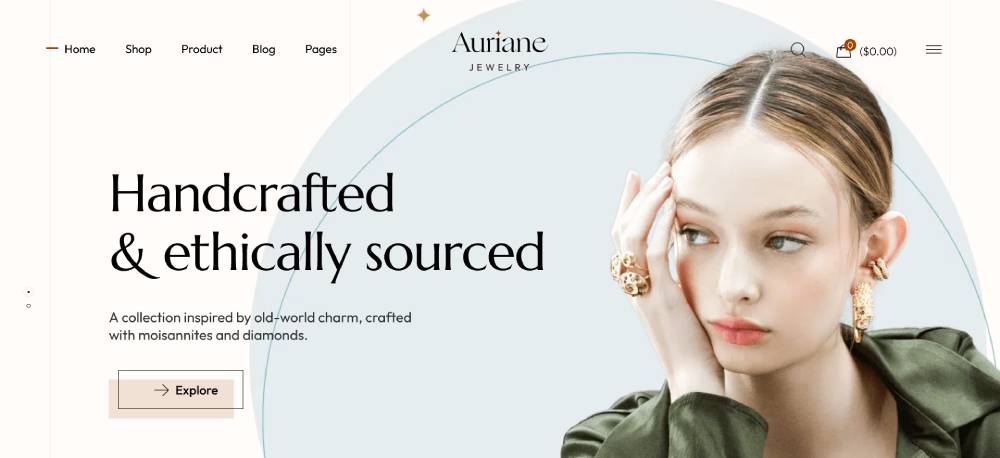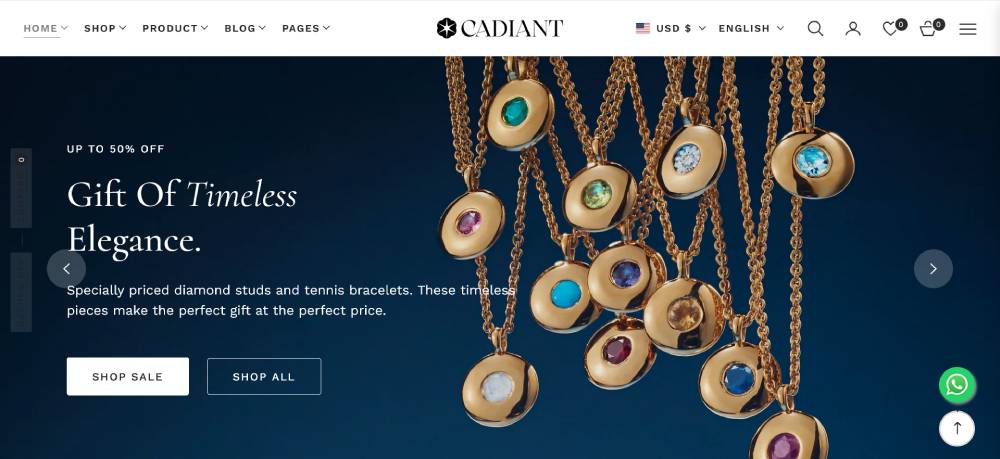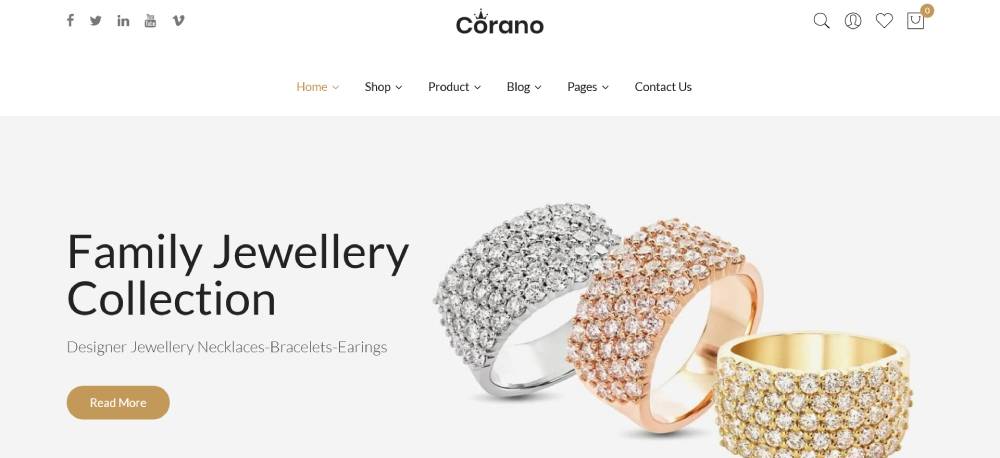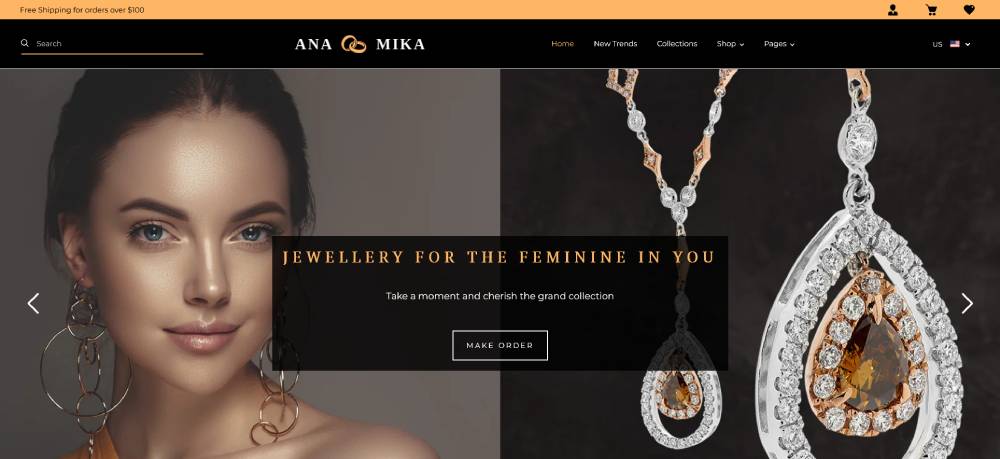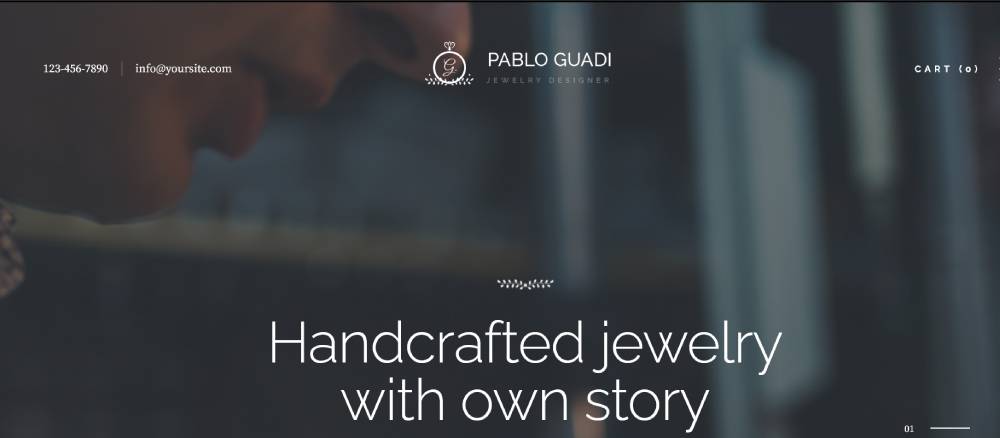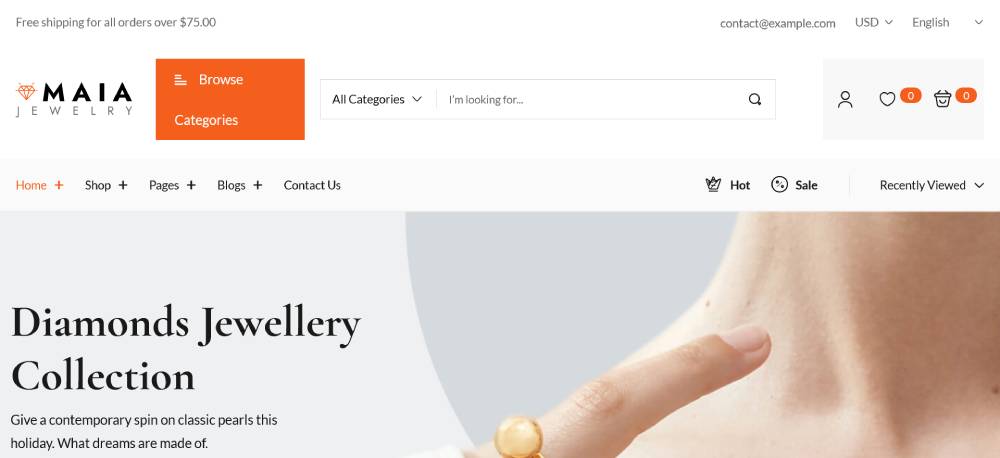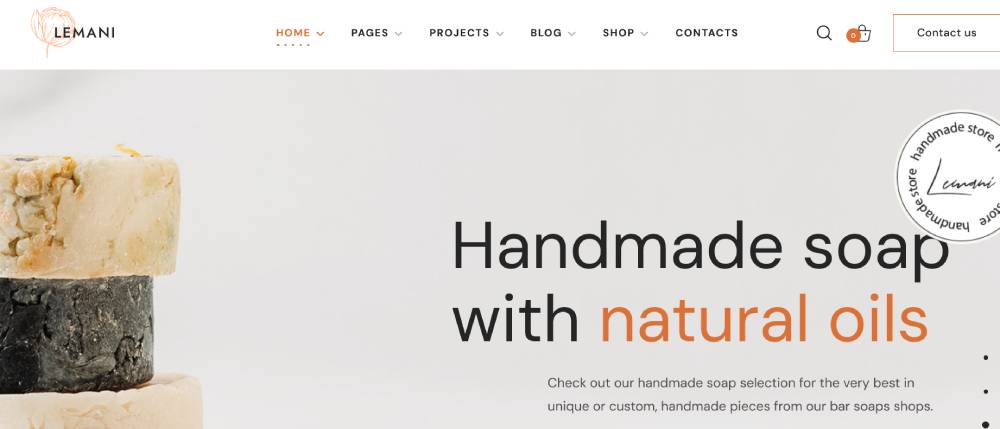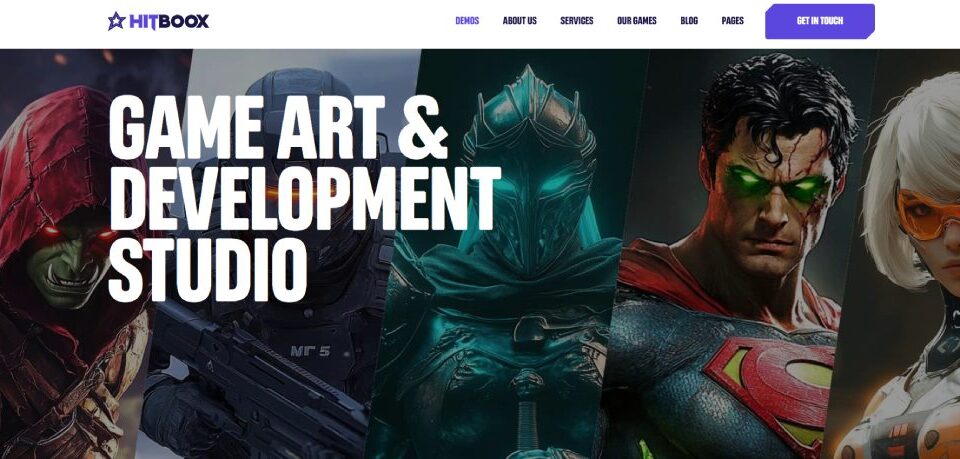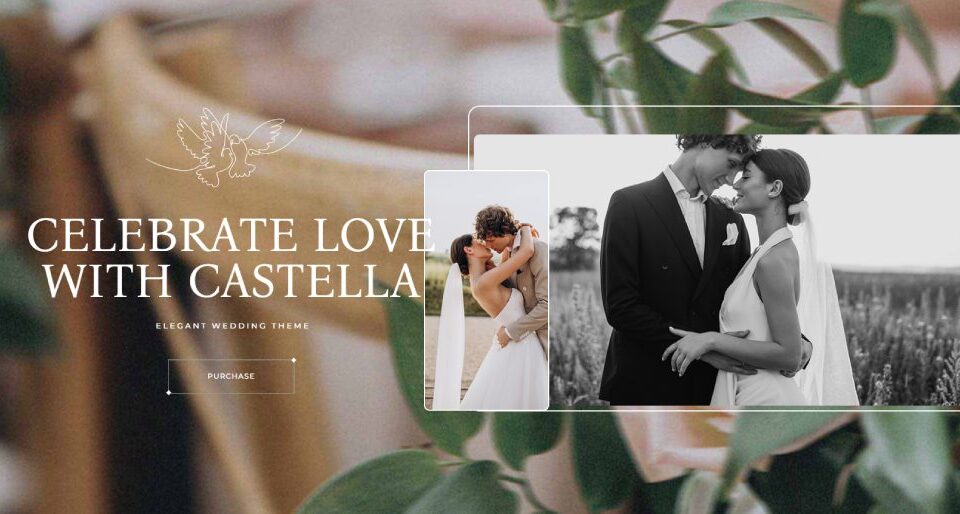
Stunning Examples of Furniture Website Templates
October 15, 2025
Top Examples of Sports Website Templates
October 19, 2025Your jewelry brand deserves a website that sparkles just as much as your products do.
Finding the right WordPress template can feel overwhelming when you're scrolling through hundreds of options. But the truth is, not all templates work well for jewelry stores.
Looking at real examples of jewelry website templates helps you understand what actually works. You'll see how successful jewelry brands handle product photography, filtering systems, and mobile shopping experiences.
We'll cover luxury jewelry designs, handmade artisan layouts, and modern minimalist themes.
You'll learn which features matter most for conversion (product zoom, wishlist functionality, collection filters) and which design elements customers expect from jewelry ecommerce sites. By the end, you'll know exactly what to look for in your next template.
Examples Of Jewelry Website Templates
Be Jeweler 2
Be Jeweler
Be Glasses
Be Watchmaker
Alukas
GoldSmith
Goldish
Djewno
DiCi
Emillia
Aro
Joice
Jubilee
Karo
Mojuri
Adena
Reprizo
Splendour
Elfrida
Auriane
Cadiant
Corano
Anamika
Pablo Guadi
Maia
Lemani
FAQ on Jewelry Website Templates
What platform works best for jewelry website templates?
Shopify dominates the jewelry ecommerce space because it handles inventory management and payment processing without technical knowledge. WooCommerce offers more customization if you're comfortable with WordPress.
BigCommerce and Squarespace work well for smaller collections. The platform choice depends on your product catalog size and technical comfort level.
How much do professional jewelry website templates cost?
Free templates exist on WordPress and Shopify but lack advanced features. Premium jewelry themes range from $50 to $300 for lifetime use.
Some ThemeForest options include ongoing updates. Monthly subscription themes through TemplateMonster cost $15-40. Budget for customization work separately if you need unique modifications beyond the template design.
Do jewelry templates work well on mobile devices?
Modern jewelry templates are mobile responsive by default. Your customers shop on phones constantly, so this isn't optional anymore.
Check that product zoom, filtering, and checkout all function smoothly on smaller screens. Some templates look great on desktop but fall apart on mobile. Always test the demo on your actual phone before purchasing any theme.
What features should jewelry ecommerce templates include?
Product zoom is non-negotiable. Customers need to see gemstone details and metal finishes clearly.
Wishlist functionality, collection filters, and quick view options improve the shopping experience significantly. Look for templates with shopping cart optimization and multiple product image support. Video background capability helps for luxury jewelry brands wanting that premium feel.
Can I customize jewelry templates without coding?
Most modern templates offer drag-and-drop customization through page builders. Divi and Elementor work with WordPress themes.
Shopify's editor lets you adjust colors, fonts, and layouts visually. You'll need a developer for complex changes like custom filtering or unique product displays. Basic modifications (logos, colors, text) are straightforward for anyone.
Which jewelry template style converts best?
Minimalist designs with lots of white space let jewelry shine. Luxury brands often use dark backgrounds with elegant typography.
Handmade jewelry sites benefit from warmer, artisan aesthetics. Conversion depends more on product photography quality and site speed than template style. Choose what matches your brand identity and makes navigation intuitive for your specific audience.
How do I add product filters to jewelry templates?
Most ecommerce platforms include basic filtering by default. WooCommerce uses widgets for metal type, gemstone, price range, and style categories.
Shopify apps like Smart Product Filter add advanced options. Your template needs to support these filtering systems properly. Check that filters work smoothly with your chosen theme before committing to a specific template design.
Do jewelry templates include photography galleries?
Quality templates have built-in gallery features for showcasing collections. Look for lightbox popups, image zoom, and multiple product views.
Some include lookbook layouts for styled product photography. The Flatsome theme offers excellent gallery options. Portfolio-style galleries work well for custom jewelry designers. Make sure the gallery displays properly across all device sizes and loads quickly.
What's the difference between free and premium jewelry templates?
Free templates offer basic functionality but limited support and updates. Premium themes include regular security patches, new features, and customer support.
You get better mobile optimization and conversion-focused layouts with paid options. Free templates often lack advanced product display features jewelry sites need. The $100-200 investment usually pays off through better user experience and fewer technical headaches.
How long does it take to set up a jewelry template?
Basic setup takes 2-4 hours if you have products and content ready. Adding products, configuring payment gateways, and customizing design extends this significantly.
Expect 1-2 weeks for a complete launch including product photography and descriptions. Shopify templates are faster to deploy than WordPress. Having quality product images ready beforehand speeds up the entire process considerably.
Conclusion
Reviewing examples of jewelry website templates shows you what's possible for your online store. The right template combines stunning product displays with smooth checkout functionality.
Your success depends on quality product photography and clear filtering systems. Customers expect to zoom in on gemstone details and compare pieces side by side.
Whether you choose a luxury dark theme or a minimalist layout with generous white space, make sure it loads fast on mobile devices. Most jewelry purchases happen on phones now.
Start with a responsive template that matches your brand aesthetic. Then customize it with your unique product images and compelling descriptions.
The best template is one that gets out of the way and lets your jewelry collection shine. Focus on user experience over flashy design elements, and you'll build a store that actually converts browsers into buyers.

